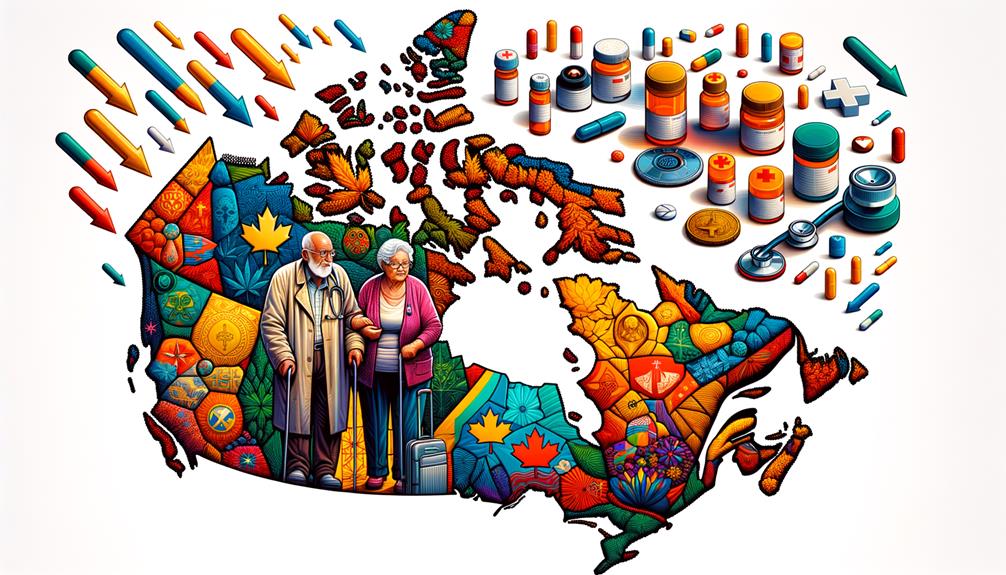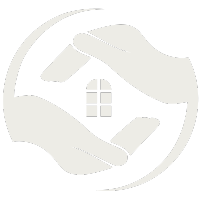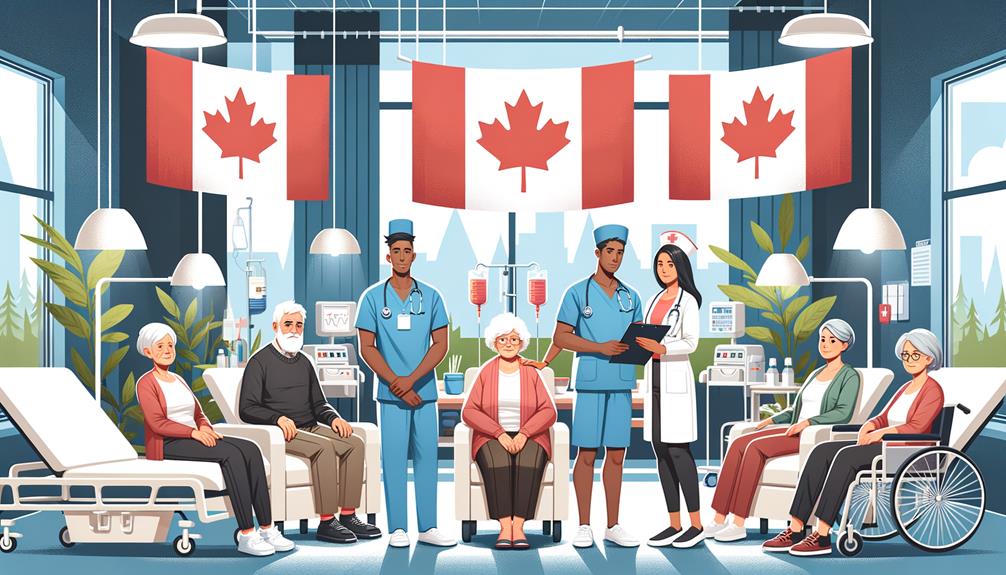Understanding the Canadian healthcare system for seniors involves knowing what services are covered and what are not. Canada’s public healthcare system provides extensive coverage, including hospital care, diagnostic tests, and some prescription medications. However, each province administers its own health insurance program, resulting in varying benefits across the country. To access these services, seniors must apply for a health card, which requires proof of residency and identification. Having a family doctor is crucial for ongoing care and specialist referrals. While waiting times for specialists can be long, maintaining open communication with healthcare providers can help manage this. For those needing extra support, options like long-term care or assisted living are available.
Understanding the Canadian Healthcare System
Understanding the Canadian healthcare system involves recognizing the breadth of services covered. Canada’s public healthcare system offers comprehensive coverage, including hospital care, laboratory tests, diagnostic procedures, prescription drugs, and some mental health services, ensuring all citizens have access to essential healthcare regardless of age or income. However, the specifics of coverage can vary by province, as each provincial government administers its own health insurance program.
On the West Coast, health authorities such as Fraser Health and Vancouver Coastal Health in British Columbia provide extensive healthcare services tailored to their communities. These health authorities manage local hospitals, clinics, and specialized services, ensuring residents receive appropriate care. In contrast, other provinces like Ontario and Quebec have their own distinct health authorities, each with unique programs and coverage details.
While the Canadian healthcare system covers many basic health needs, certain services such as vision and dental care are not included. This is where supplemental insurance becomes important. Obtaining supplemental insurance can enhance your healthcare coverage, ensuring that additional services are also accessible. This is particularly beneficial for senior citizens who may require more extensive care.
Applying for a Health Card

Applying for a health card is a critical step for seniors to access Canada’s public healthcare system. Each provincial government handles health card applications, meaning requirements and eligibility criteria vary based on residency. For example, in British Columbia, seniors apply through the Medical Services Plan (MSP), while in Alberta, the Alberta Health Care Insurance Plan (AHCIP) manages applications.
To apply, gather necessary documents such as proof of residency, identification, and immigration status if applicable. The application process is generally free, but it’s important to apply promptly upon establishing residency in the province to avoid delays. Some provinces may impose a waiting period of up to three months before new residents can fully access healthcare services using their health card, so timely application is essential.
Once submitted, the provincial government will process the application and issue a health card, granting access to publicly funded healthcare services. This card is vital for receiving medical care, from routine check-ups to emergency services. Securing a health card promptly ensures that healthcare needs are met efficiently without unnecessary out-of-pocket expenses.
Finding a Family Doctor
Finding a family doctor is crucial for ensuring consistent and comprehensive healthcare throughout senior years. Family doctors serve as primary care providers, managing overall health, routine check-ups, and providing necessary referrals to specialists. However, not all family doctors accept new patients, making the search challenging.
To find a suitable healthcare provider, seniors can utilize several resources:
- Seek recommendations from family, friends, community health centers, and newcomer service providers.
- Use online platforms like Lumino Health to locate available family doctors in your area.
- Contact regional health authorities, such as Fraser Health or Vancouver Coastal Health, to obtain information on family doctors accepting new patients.
- Visit walk-in clinics, which can sometimes refer you to family doctors within their network.
Having a family doctor ensures personalized, ongoing medical care and necessary referrals to specialists when needed. They act as a consistent point of contact in navigating the healthcare system, especially important for seniors managing multiple health issues. By proactively seeking recommendations and utilizing available resources, seniors can overcome the challenges of finding a family doctor and secure the primary care they need.
Seeing a Specialist

When it comes to seeing a specialist in Canada, obtaining a referral from your family doctor is the first step. This ensures you receive the appropriate care and helps specialists manage their workload. Be prepared for potential wait times and additional tests, which are typically covered by provincial healthcare plans.
Referral Process Explained
To see a specialist in Canada, a referral from your family doctor or primary healthcare provider is usually required. This referral process is essential for managing specialist appointments efficiently and ensuring healthcare providers can coordinate care effectively. Here’s how it typically works:
Begin by visiting your family doctor or primary healthcare provider, who will assess your condition. If necessary, they will issue a referral to the appropriate specialist.
Additional medical tests may be required to provide the specialist with detailed information. Once the referral and necessary tests are completed, you can schedule your specialist appointment.
This process not only organizes specialist appointments but also prevents overbooking, allowing for timely and appropriate access to specialized care. It’s essential to communicate openly with your healthcare provider to ensure the referral is accurate and complete. By following these steps, you help maintain the integrity and efficiency of the Canadian healthcare system, ensuring seniors receive the specialized care they need when they need it.
Wait Times Management
Effectively managing wait times is crucial to ensuring seniors receive timely access to specialized care within the Canadian healthcare system. A referral from a family doctor or healthcare practitioner is necessary to see a specialist, but wait times for these appointments can vary significantly. Factors such as the urgency of the referral and specialist availability greatly influence wait times.
To manage wait times effectively, understand the referral process and stay proactive in following up on appointments. Recognize that high demand and limited availability of specialists in certain medical fields can cause delays, so be prepared to advocate for timely care.
One effective strategy is maintaining open communication with both your referring doctor and the specialist’s office. This ensures your healthcare needs remain a priority and that any changes in your condition are promptly addressed. Additionally, exploring alternative specialists or clinics with shorter wait times can sometimes expedite access to care.
Specialist Appointment Preparation
Proactively preparing for specialist appointments ensures seniors receive the most effective and efficient care possible within the Canadian healthcare system. A referral from a family doctor or healthcare practitioner is necessary to see a specialist, as it helps manage availability and prevent overbooking. Given the potential for long wait times, it’s crucial to advocate for timely referrals and communicate healthcare needs clearly.
When preparing for a specialist appointment, consider the following steps:
- Gather Medical History: Bring a detailed list of past medical conditions, treatments, and medications. This information helps the specialist understand the full scope of healthcare needs.
- Prepare Questions: Outline any concerns or symptoms to discuss during the appointment, ensuring no critical information is overlooked.
- Coordinate with Your Family Doctor: Ensure that your family doctor shares all relevant medical records and test results with the specialist ahead of time.
- Follow-up on Tests: If additional tests are recommended, confirm that they are covered under provincial healthcare plans and schedule them promptly.
Effective communication between your family doctor, specialist, and yourself is crucial for thorough care. By taking these steps, seniors can receive the timely and thorough medical attention they deserve.
Accessing Additional Medical Tests

Accessing additional medical tests in Canada typically starts with a referral from your family doctor or health practitioner, ensuring the process is efficient and streamlined. This referral is crucial in the Canadian healthcare system as it helps schedule appointments effectively and avoid overwhelming specialists. By having your health practitioners request specific medical tests based on your individual health needs, you ensure you receive the most relevant and timely care.
The referral process aligns with the systematic approach of the Canadian healthcare system, and it also means that your medical tests are usually covered under provincial healthcare plans. While wait times may vary, the standardized referral system helps manage expectations and resources effectively.
Once you’ve received a referral, the next step is to schedule the test. It’s essential to remember that these tests are determined by your unique health profile, providing accurate diagnoses or monitoring ongoing conditions. By following the referral protocol, you contribute to a more organized and efficient healthcare system, ultimately ensuring seniors receive the best possible care.
Out-of-Province Care

When traveling out of province, seniors need to navigate different healthcare coverage rules to ensure they receive necessary medical services without incurring unexpected expenses. Out-of-province care often comes with limitations, which can result in unexpected out-of-pocket costs. Provinces typically reimburse at their own rates, which may not cover the full expense incurred in another province. To avoid financial surprises, it’s crucial to be proactive.
Here’s what you need to consider:
- Familiarize yourself with your provincial healthcare coverage: Each province has its own rules regarding what services are covered out of province. Understand these details before you travel.
- Be prepared to pay upfront: Some provinces require you to pay for healthcare services upfront and then seek reimbursement. Keep all receipts and documentation, as this process can be cumbersome.
- Consider purchasing travel insurance: Travel insurance can cover the gaps in your provincial healthcare coverage. It’s a wise investment to protect yourself.
- Understand what’s medically necessary: Only services deemed medically necessary in your home province are typically covered. Understand this to avoid incurring unexpected expenses.
Specialized Care Options

Selecting the right specialized care option for seniors is vital to ensuring they receive the support and assistance tailored to their unique needs. In Canada, several options are available, including long-term care facilities, retirement homes, and assisted living communities. Each of these options provides a range of personalized services, such as personal care assistance, medication management, and meal services, to cater to the specific needs of seniors.
Long-term care facilities are designed for seniors with complex medical needs, providing 24-hour nursing care and support. These facilities ensure that seniors receive the continuous medical attention they require. On the other hand, retirement homes cater to seniors who prefer independent living but may still need optional support services. They offer a more autonomous lifestyle while ensuring that assistance is available when needed.
Assisted living communities fill the gap between these two options, providing a higher level of care for seniors who need help with daily activities but do not require constant medical supervision. By offering diverse specialized care options, we can ensure our seniors find the most suitable environment to maintain their quality of life and well-being.
Frequently Asked Questions
Is Healthcare Free for Seniors in Canada?
Healthcare isn’t entirely free for seniors in Canada. While the national healthcare system covers essential medical services, seniors may still face costs for prescription drugs, medical equipment, and additional services outside of the public system. To help bridge these gaps, many seniors opt for supplemental private insurance.
How Are Elderly Cared for in Canada?
Caring for the elderly in Canada involves a range of initiatives. Provinces like British Columbia utilize health authorities such as Fraser Health and Vancouver Coastal Health to provide comprehensive care, including the National Senior Strategy, housing assistance, and mental health support. These programs are designed to offer personalized care that meets the unique needs of seniors across different regions.
What Medical Benefits Do You Get When You Turn 65 in Canada?
When you turn 65 in Canada, you become eligible for provincial or territorial drug plans that cover prescription medications. Additionally, you may qualify for benefits like the Canada Pension Plan, Old Age Security pension, and the Guaranteed Income Supplement, which can significantly improve financial security in retirement.
What Does OHIP Cover for Seniors Over 65 in Canada?
OHIP covers a wide range of medical services for seniors over 65, including doctor visits, hospital stays, surgeries, specialist consultations, and diagnostic tests. It also provides access to long-term care, home care, and palliative care. Additionally, seniors can receive prescription drugs through the Ontario Drug Benefit (ODB) program.
For more detailed information on navigating the Canadian healthcare system, visit the Government of Canada’s Healthcare Services.



